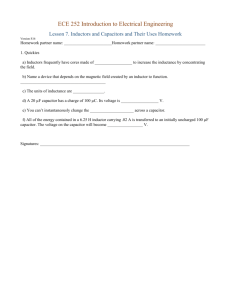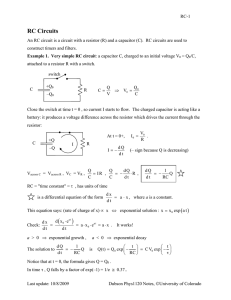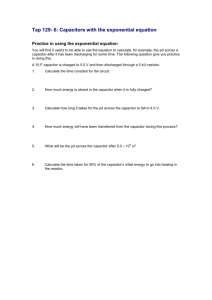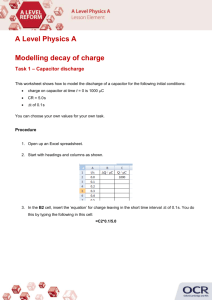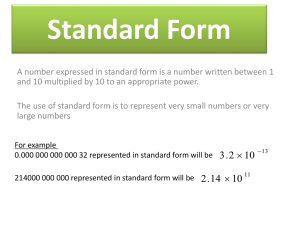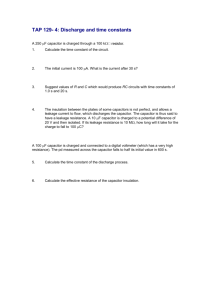Formula, constant sheet for Test II, PHY2061
advertisement
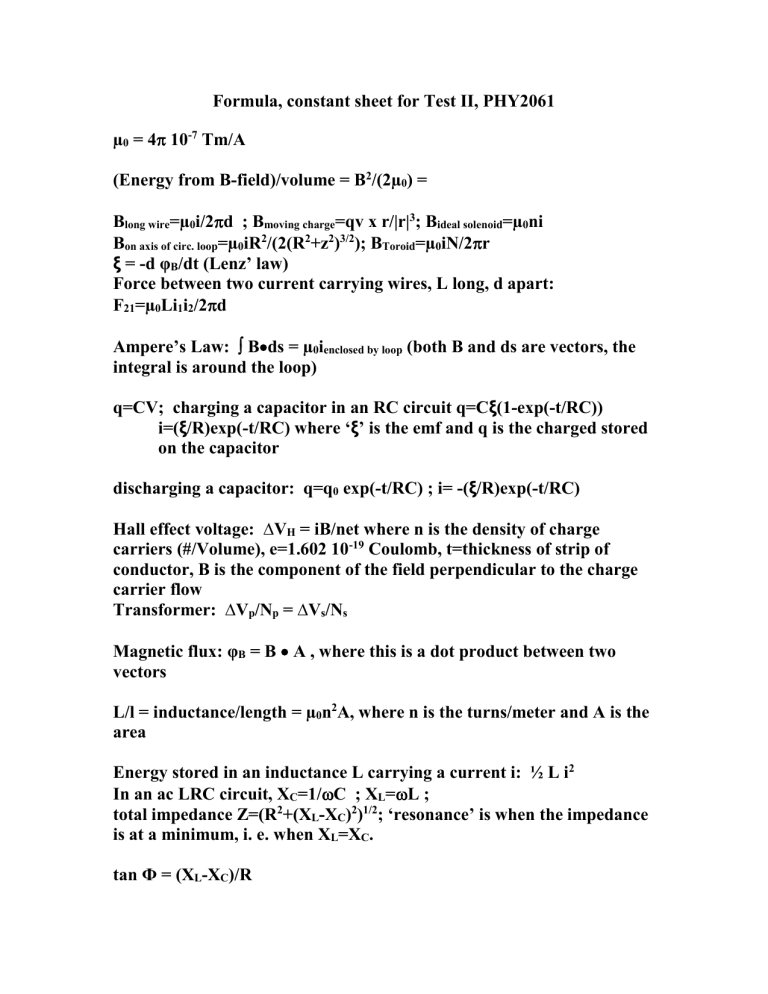
Formula, constant sheet for Test II, PHY2061 µ0 = 4 10-7 Tm/A (Energy from B-field)/volume = B2/(2µ0) = Blong wire=µ0i/2d ; Bmoving charge=qv x r/|r|3; Bideal solenoid=µ0ni Bon axis of circ. loop=µ0iR2/(2(R2+z2)3/2); BToroid=µ0iN/2r ξ = -d φB/dt (Lenz’ law) Force between two current carrying wires, L long, d apart: F21=µ0Li1i2/2d Ampere’s Law: Bds = µ0ienclosed by loop (both B and ds are vectors, the integral is around the loop) q=CV; charging a capacitor in an RC circuit q=Cξ(1-exp(-t/RC)) i=(ξ/R)exp(-t/RC) where ‘ξ’ is the emf and q is the charged stored on the capacitor discharging a capacitor: q=q0 exp(-t/RC) ; i= -(ξ/R)exp(-t/RC) Hall effect voltage: ∆VH = iB/net where n is the density of charge carriers (#/Volume), e=1.602 10-19 Coulomb, t=thickness of strip of conductor, B is the component of the field perpendicular to the charge carrier flow Transformer: ∆Vp/Np = ∆Vs/Ns Magnetic flux: φB = B A , where this is a dot product between two vectors L/l = inductance/length = µ0n2A, where n is the turns/meter and A is the area Energy stored in an inductance L carrying a current i: ½ L i2 In an ac LRC circuit, XC=1/C ; XL=L ; total impedance Z=(R2+(XL-XC)2)1/2; ‘resonance’ is when the impedance is at a minimum, i. e. when XL=XC. tan Ф = (XL-XC)/R
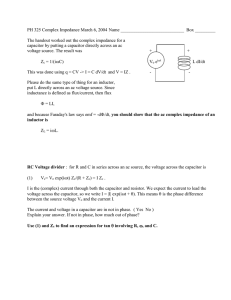
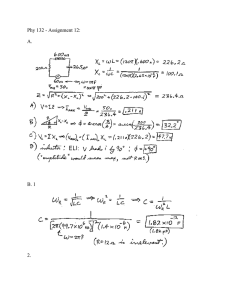
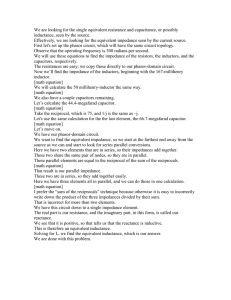
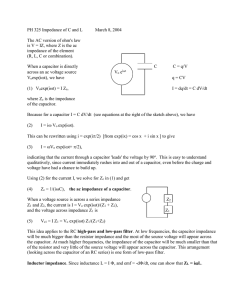
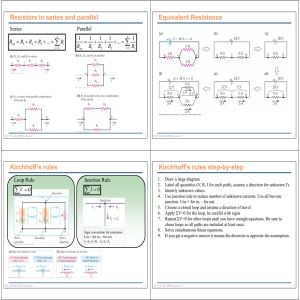
![Sample_hold[1]](http://s2.studylib.net/store/data/005360237_1-66a09447be9ffd6ace4f3f67c2fef5c7-300x300.png)
